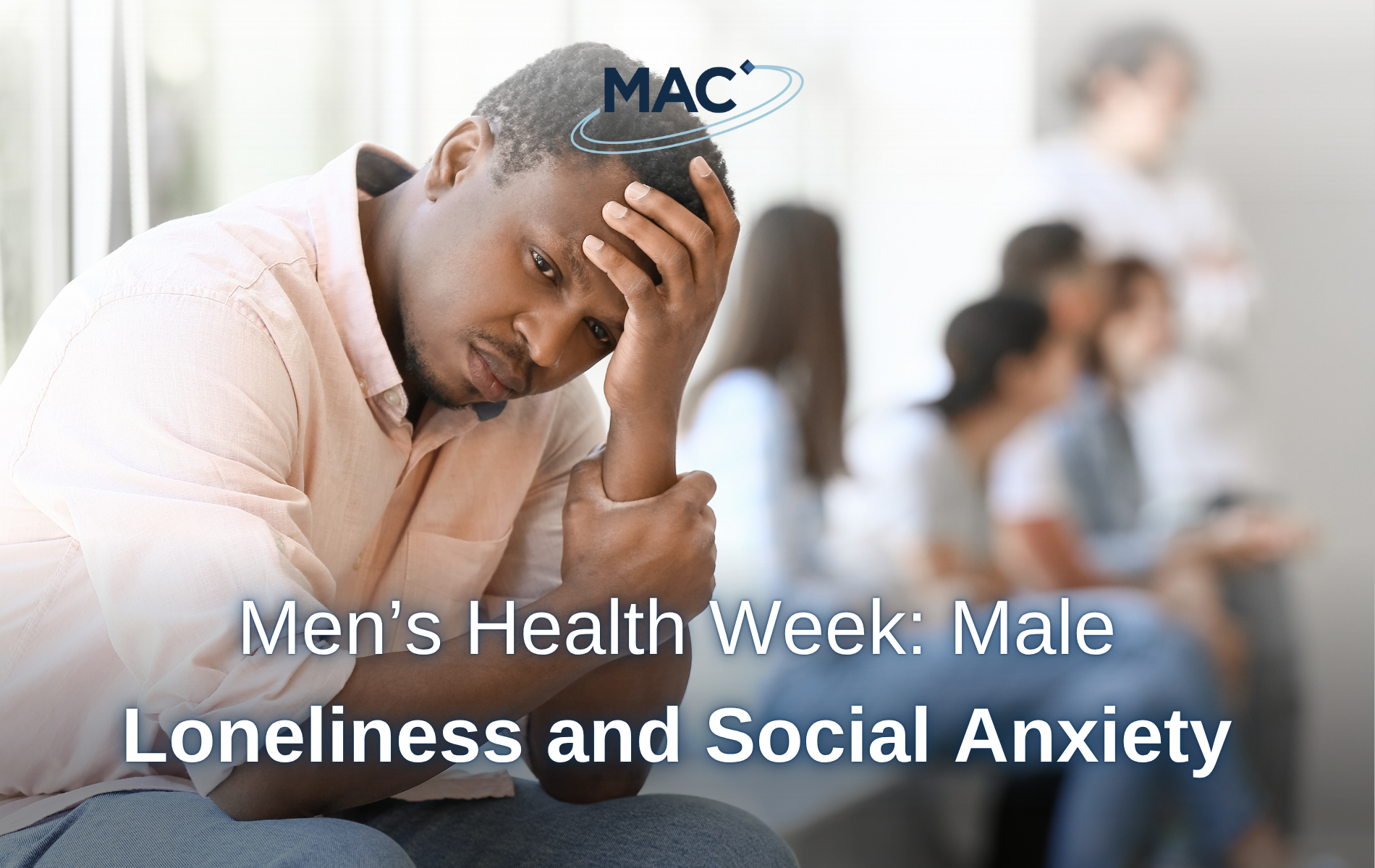In recent years, conversations around mental health have become more open and compassionate, but issues such as male loneliness and social anxiety often remain unspoken. As we mark Men’s Health Week, it’s time to shine a light on this growing challenge affecting millions of men across the UK and beyond.
A Silent Epidemic
Loneliness doesn’t always look like isolation. A person can be surrounded by others, go to work, have a family, and still feel completely disconnected. For many men, these feelings go unspoken, bottled up due to outdated ideas about masculinity, assuming that emotional expression equates to weakness. The “man up” mentality is slowly being dismantled, but its impact remains, making it difficult for some men to admit when they’re struggling.
Studies show that men are less likely than women to report feelings of loneliness and are more likely to suffer from its effects in silence1. Furthermore, young men are reporting higher levels of social anxiety, especially post-pandemic, when routines and support networks were disrupted2.
What is Social Anxiety?
Social anxiety adds another layer to the problem. It’s not just about being shy, it’s a persistent fear of being judged, rejected, or humiliated in social situations. It’s estimated that up to 12% of people will experience social anxiety at some point in their lifetime3.
This fear can make even casual interactions feel like high-stakes encounters. For men, who may already feel pressure to appear confident and in control, acknowledging this anxiety can feel like admitting defeat.
Social Media and Social Anxiety
Technology, while keeping us more connected than ever, hasn’t necessarily helped. Many men may find themselves replacing real-life friendships with online interactions, which can sometimes deepen feelings of isolation. Furthermore, scrolling through highlight reels of others’ online lives can fuel self-doubt and anxiety, rather than fostering connection.
Tackling Loneliness
Firstly, men and their peers must normalise talking about loneliness and anxiety as real and valid health concerns. Campaigns like Men’s Health Week are a great starting point, but these conversations need to happen year-round, in workplaces, community spaces, and homes.
Secondly, men need spaces where they feel safe to open up. This could be through peer support groups or even informal meetups that prioritise genuine connection over small talk.
Finally, we need to challenge the stereotypes that perpetuate toxic masculinity and reinforce the myth that men must tough it out alone. Strength isn’t about staying silent, it’s about knowing when to reach out, and having the courage to do so.
Improving Treatments for Social Anxiety
Social anxiety can be difficult to manage, but it doesn’t have to control your life. MAC Clinical Research are conducting a new study for a potential new social anxiety treatment, but we need your help. If eligible you will receive up to £2,510 for your time and commitment, plus reasonable travel expenses. Find out how you can get involved and make a difference to a medical condition that matters to you by visiting our social anxiety study page.
1 Office for National Statistics – Loneliness – What characteristics and circumstances are associated with feeling lonely?
2 PLOS – Social anxiety in young people: A prevalence study in seven countries
3 NICE – Social anxiety disorder




